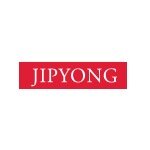Best Employment Rights Lawyers in Jung-gu
Share your needs with us, get contacted by law firms.
Free. Takes 2 min.
List of the best lawyers in Jung-gu, South Korea
About Employment Rights Law in Jung-gu, South Korea
Employment rights in Jung-gu, South Korea, are governed by a combination of national labor laws and regional regulations. The central legislation is the Labor Standards Act, which sets minimum employment conditions. These laws cover key areas like employee contracts, working hours, wages, termination conditions, and workplace safety. Jung-gu, being a commercial hub, has a diverse workforce and provides specific guidance to ensure fair treatment of employees and harmonious labor relations.
Why You May Need a Lawyer
There are several situations where you might need legal assistance with employment rights in Jung-gu:
- Disputes over employment contracts, such as breaches or unfair terms.
- Unlawful dismissal claims, where an employee believes their termination was unjust.
- Issues with wages, including underpayment, delayed payments, or illegal deductions.
- Discrimination or harassment claims within the workplace.
- Understanding and applying for government support or worker benefits.
- Collective bargaining and union-related issues.
- Workplace health and safety violations.
Local Laws Overview
Jung-gu follows South Korean national labor laws, with additional regional regulations that may affect local businesses and workers. Notably:
- Labor Standards Act: Covers minimum standards for employment conditions.
- Employment Insurance Act: Provides for unemployment benefits and job security.
- Minimum Wage Act: Sets the least wage an employer can offer an employee.
- Equal Employment Opportunity Act: Ensures no discrimination in hiring and employment.
- Maternity and Childcare Protection: Advocates for parental leave and children's welfare.
Frequently Asked Questions
1. What are the basic working hours in Jung-gu?
Standard working hours in Jung-gu are typically 8 hours a day and 40 hours a week, with provisions for overtime pay.
2. What is the minimum wage in Jung-gu?
The minimum wage in Jung-gu follows the national minimum wage set by the South Korean government, which is updated annually.
3. Can my employer terminate my contract without notice?
No, typically employees must receive a minimum of 30 days' notice or compensation in lieu of notice unless under specific circumstances outlined by the law.
4. How do I report workplace discrimination?
Workplace discrimination can be reported to the Ministry of Employment and Labor or through legal channels with the help of an employment rights lawyer.
5. Am I entitled to paid leave?
Yes, employees are entitled to annual paid leave and additional leave for specific circumstances, like maternity leave, as per the national labor laws.
6. What should I do if my employer underpays me?
If you are underpaid, document your earnings and work hours and consider discussing the issue directly with your employer or seeking legal advice.
7. Is there a legal process for resolving employment disputes?
Employment disputes can be resolved through mediation by the Labor Relations Commission or through legal action if necessary.
8. How are workplace safety regulations enforced?
The Occupational Safety and Health Act governs workplace safety, enforced by regular inspections and employer compliance.
9. Can I form or join a union?
Yes, employees have the right to form or join trade unions and engage in collective bargaining.
10. How is overtime pay calculated?
Overtime pay is typically calculated at 150% of the regular wage rate for hours worked beyond the standard working hours.
Additional Resources
For further information and assistance, consider the following resources:
- Ministry of Employment and Labor: Provides comprehensive information on labor laws and employee rights.
- Jung-gu Office of Labor Relations: Local office dealing with regional employment issues and disputes.
- Legal Aid Centers: Offer free or affordable legal assistance for employment-related issues.
- Trade Unions: Specific to industry sectors, providing support and advice for workers.
Next Steps
If you require legal assistance with employment rights in Jung-gu, consider these steps:
- Gather Evidence: Collect relevant documents, records, or communication pertaining to your case.
- Seek Professional Advice: Consult a lawyer specialized in employment law to discuss your options.
- Contact Local Authorities: Engage with the Ministry of Employment and Labor for initial guidance.
- Consider Mediation: Mediation could be an effective way to resolve disputes without formal legal proceedings.
- File a Complaint: If needed, lodge a formal complaint with the relevant labor authorities.
Lawzana helps you find the best lawyers and law firms in Jung-gu through a curated and pre-screened list of qualified legal professionals. Our platform offers rankings and detailed profiles of attorneys and law firms, allowing you to compare based on practice areas, including Employment Rights, experience, and client feedback.
Each profile includes a description of the firm's areas of practice, client reviews, team members and partners, year of establishment, spoken languages, office locations, contact information, social media presence, and any published articles or resources. Most firms on our platform speak English and are experienced in both local and international legal matters.
Get a quote from top-rated law firms in Jung-gu, South Korea — quickly, securely, and without unnecessary hassle.
Disclaimer:
The information provided on this page is for general informational purposes only and does not constitute legal advice. While we strive to ensure the accuracy and relevance of the content, legal information may change over time, and interpretations of the law can vary. You should always consult with a qualified legal professional for advice specific to your situation.
We disclaim all liability for actions taken or not taken based on the content of this page. If you believe any information is incorrect or outdated, please contact us, and we will review and update it where appropriate.








